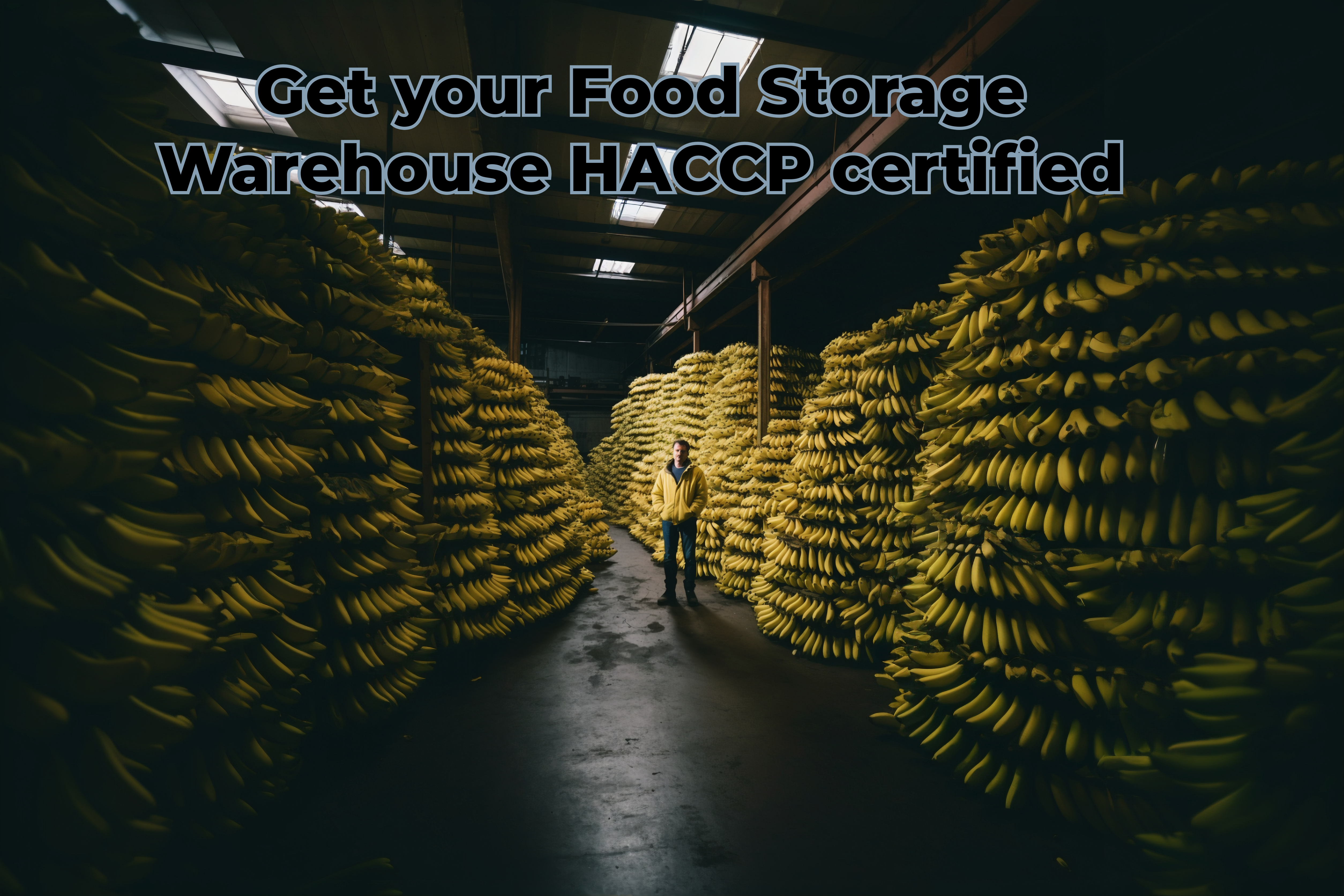At Assured Food Safety Consulting (AFSC), we are excited to share that Olympia Warehousing Inc., a food storage warehouse based in Burnaby, has successfully obtained its HACCP certification! This achievement highlights their commitment to food safety and sets an example for other facilities aiming for the same goal.
HACCP certification is essential for food storage warehouses to ensure the safety and quality of the food products they handle. Below are the five mandatory regulations that must be in place to achieve HACCP certification for your warehouse:
1.Written HACCP Plan
The foundation of any HACCP-certified facility is a well-documented HACCP plan. This plan outlines the potential hazards in your facility, the critical control points (CCPs) to manage these hazards, and the monitoring procedures needed to ensure safety. A comprehensive HACCP plan should include hazard analysis, CCP identification, and corrective actions for any deviations. This document is the road map for your entire food safety management system.
Pro Tip: Regularly review and update your HACCP plan to ensure it reflects current operations and addresses new risks as they arise.
2. Water Testing and Back flow Prevention
Water safety is crucial in maintaining a hygienic environment in your food storage facility. Annual water testing ensures that the water used in your facility meets safety standards and is free from contaminants. Backflow prevention systems are equally important, as they protect against contamination from water flowing in the reverse direction, which could introduce harmful substances into the water supply.
Pro Tip: Implement a water testing schedule and ensure that all back flow prevention devices are properly installed and maintained.
3. Lot Code and Traceability System
Having an effective lot code and traceability system is essential for managing food safety risks. This system allows you to track food products from the moment they enter your warehouse until they are distributed. If an issue arises, this traceability ensures that you can quickly identify and isolate affected products, minimizing the impact of potential recalls.
Pro Tip: Invest in technology that automates traceability, making it easier to manage and track lot codes for every product that passes through your facility.
4. Pest Control and Sanitation Plan
A strong pest control and sanitation plan is key to preventing contamination in your warehouse. Pests such as rodents and insects can carry harmful bacteria and pathogens that could compromise food safety. Your pest control plan should include regular inspections, professional pest management services, and maintaining a clean environment to deter pests. In addition, a well-structured sanitation plan ensures that all areas of your facility are properly cleaned and disinfected, reducing the risk of cross-contamination.
Pro Tip: Train your staff on the importance of cleanliness and create a schedule for routine cleaning and pest control inspections to stay compliant.
5. Food Defense Program
A food defense program is designed to protect your warehouse from intentional contamination or sabotage. This program should include measures to secure your facility, monitor access, and implement surveillance systems to ensure that your food products are safe from tampering or intentional harm. It’s important to regularly assess the vulnerabilities in your facility and update your food defense program accordingly.
Pro Tip: Conduct periodic audits of your food defense measures and involve your team in identifying any potential security gaps.
Pro Tip: Hire a Food Safety Consultant
Achieving HACCP certification can be a complex process, but hiring a food safety consultant can make it much easier. A qualified consultant brings expertise and experience to the table, helping you navigate regulatory requirements and ensuring that your facility meets all the necessary standards. They can assist with writing and implementing your HACCP plan, guide you through audits, and provide ongoing support to maintain compliance. By investing in a consultant, you can save time, avoid costly mistakes, and achieve certification fasterAssured Food Safety Consulting’s certified SQF Consultant and Lead HACCP instructors have been helping food businesses since 2022. We provide food safety plan creation services and HACCP/GFSI training services. If you require assistance with your HACCP plan or SQF program, Contact us at info@assuredfoodsafety.ca to request a quote.


